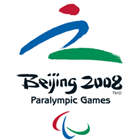Record Number of Doping Tests Conducted in Beijing
Bonn, Germany - The International Paralympic Committee (IPC) officially announces that only three anti-doping rule violations occurred during the Beijing 2008 Paralympic Games. All three were in the sport of Powerlifting and happened before competitions began. Because there was no anti-doping rule violation in-competition, the IPC feels the Games to be still a successful showing and of fair competition. 10 Oct 2008 By IPCA total of 1,155 doping tests were conducted during the testing period of the Games, with a total of 317 tests out-of-competition and 838 tests in-competition across all sports. The total number of athletes who were tested was 893, with 215 being out-of-competition and 678 in-competition. Compared to Athens in 2004, where 680 tests resulted in ten anti-doping rule violations (two out-of-competition and eight in-competition), the IPC saw a clear progression in the fight against doping.
The testing administered at the Beijing 2008 Paralympic Games was more comprehensive and significantly greater than the previous Summer Games. For the first time during Summer Games, the testing plan included blood testing. Further to the Games-related testing, several National Anti-Doping Agencies, the World Anti-Doping Agency (WADA) as well as the IPC performed out-of-competition tests in the lead-up to the Beijing 2008 Paralympics, thus contributing to the success of the low number of violations at the Games.
Said Sir Philip Craven: “Although the IPC did not reach the goal of violation-free Games, we are noting the Beijing 2008 Games as a great success and a strong stepping stone into a future where the organization and its athletes continue to grow and follow our commitment to fair play. We thank all our partners for their tireless efforts.”
“Together with our members and WADA, the IPC believes that a pro-active educational effort, as well as comprehensive out-of-competition testing pays off in the fight against doping”, he added.
The IPC does not plan to store samples for a period longer than foreseen in the corresponding International Standards published by WADA.
As a signatory of the World Anti-Doping Code (WADC), the IPC remains committed to a doping-free sporting environment at all levels. The IPC, together with the International Federations and the National Paralympic Committees, established the IPC Anti-Doping Code in January 2004 to prevent, in the spirit of fair play, doping in sport for athletes with a disability. The IPC Anti-Doping Code is in conformity with the general principles of the WADC.
The new IPC Anti-Doping Code, which is in compliance with the new World Anti-Doping Code, will officially go into effect on 1 January 2009.
For more information about the Beijing 2008 Paralympic Games, please visit www.paralympic.org.

 Facebook
Facebook
 Instagram
Instagram
 Twitter
Twitter
 Youtube
Youtube
 TikTok
TikTok
 Newsletter Subscribe
Newsletter Subscribe
